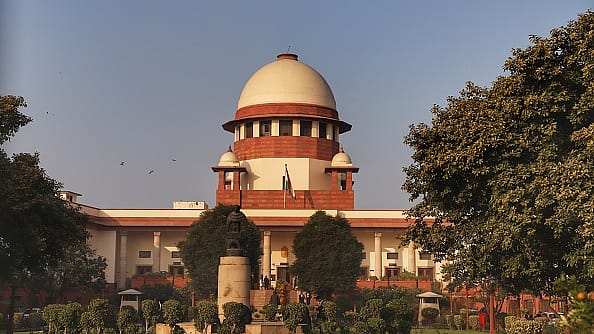Banks must hear borrowers before classifying accounts as fraud: Supreme Court
ADVERTISEMENT

The Supreme Court on Monday held that borrowers must be given an opportunity to be heard before their accounts are classified as "fraud" by banks.
The bench noted that classifying accounts as fraud results in serious criminal and civil consequences for borrowers and amounts to "blacklisting".
The top court said that a reasoned order must be passed by the bank while classifying an account as fraudulent, as it will act as a "check on the arbitrary exercise of powers".
The principles of natural justice demand that the borrowers must be served a notice, given an opportunity to explain the conclusions in the forensic audit report and be allowed to represent the banks and joint lenders forum before their accounts are classified as fraud, the apex court said.
In 2016, the Reserve Bank of India (RBI) released its master circular which allowed banks to unilaterally classify accounts of wilful defaulters as fraudulent.
The Supreme Court bench comprising Chief Justice of India DY Chandrachud and Justice Hima Kohli upheld the judgment passed by the Telangana High Court. The high court had held that an opportunity of hearing must be given to the borrower before the account is classified as "fraud".
The bench, however, said that no opportunity of being heard was required before registration of a First Information Report (FIR).
January 2026
Netflix, which has been in India for a decade, has successfully struck a balance between high-class premium content and pricing that attracts a range of customers. Find out how the U.S. streaming giant evolved in India, plus an exclusive interview with CEO Ted Sarandos. Also read about the Best Investments for 2026, and how rising growth and easing inflation will come in handy for finance minister Nirmala Sitharaman as she prepares Budget 2026.
In its Financial Stability Report released in December 2022, the RBI said that the quantum of financial frauds in the Indian banking system fell 46% year-on-year to ₹19,485 crore between April and September 2022. Banks had reported frauds worth ₹36,316 crore during the same period last year.
Amounting to ₹18,746 crore, loan-related frauds clocked the biggest share in the first half of FY23, as per RBI data. "Based on the date of occurrence of frauds, advances-related frauds formed the biggest category prior to 2019-20. Subsequently, however, in terms of number of frauds, the modus operandi shifted to card or internet based transactions," the RBI said, adding that cash frauds are also on the rise.
The number of fraud cases reported by private lenders outnumbered those by public sector banks (PSBs) for the second consecutive year in 2021-22. In terms of the amount involved, however, the share of PSBs was 66.7% in 2021-22, as compared with 59.4% in the previous year.
